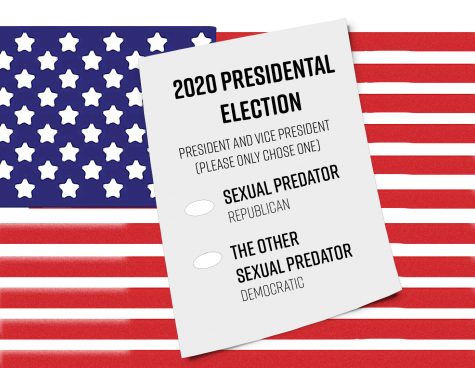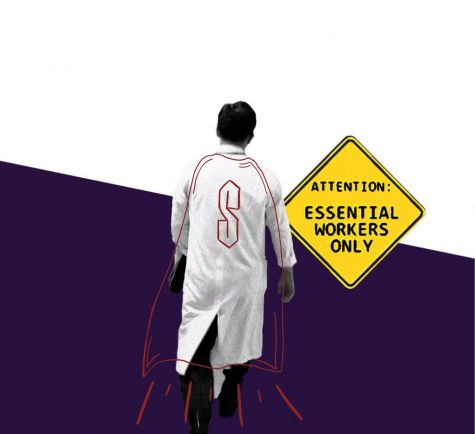The ‘swamp’ in action: Josh Hawley
On the last edition of “the ‘swamp’ in action,” I took a look at the corruption of former U.S. Senator and current MSNBC analyst Claire McCaskill. I thought it only fair that this time around we should look into the record of the guy who replaced her: former Missouri attorney general and current Senator, Josh Hawley.
The biggest thing to talk about with Hawley is that he’s a hypocrite. During his 2016 campaign for attorney general, Hawley made a big deal out of decrying “career politicians,” or people who are only in politics for themselves and are only trying to run for an office so they can run for a higher one in the future. He then accused his opponent of being a career politician, and as such said she was unable to effectively do the job of attorney general because political concerns would get in the way of her judgment—unlike Hawley who sought no higher office and would focus only on enforcing the law and protecting Missouri voters.
That was the idea, anyway. He even went so far as to make several ads featuring this argument in which he swore to voters repeatedly that he would serve out his full term as attorney general. Just nine months into his four-year term as attorney general, Hawley announced he was quitting to run against McCaskill.
Aside from the obvious hypocrisy here, I was amazed that I couldn’t really find a decent response from Hawley about this during his senate campaign. The best response I found to a question specifically about this was from a CNN article: “‘No, no, no,’ Josh Hawley said, suddenly animated. ‘No. No. No. Not on the agenda.’”
He was responding to criticism raised by both Democrats and Republicans, that his swift rise made him a political opportunist who was looking ahead to a senate bid when he ran for attorney general two years ago.
“That’s a hard no…. It was not anything — no, that was not on the brain,” Hawley said.
Although Hawley’s defenders are right, there’s no way to know for sure what was “on the brain,” it does seem suspicious that he would so readily abandon what seemed to be one of his core principles—standing against career politicians and opportunism—without so much as a thorough explanation as to why.
In addition, after running for attorney general on an anti-corruption platform, Hawley seems to have assimilated quite well into the pay-to-play culture in the state capitol. Despite promising to form a public corruption unit and be tough in investigating corruption by state officials, Hawley refused to seriously investigate corruption claims against former Gov. Eric Greitens.
There were several allegations that Greitens had misused information and funds from a veterans’ charity he started, but Hawley refused to investigate them until it would have been politically harmful for him to continue to do so. When forced into a situation where he had to investigate Greitens in regards to the former governor’s misuse of an encrypted messaging app called Confide, he quickly cleared him on all counts after an investigation where Hawley did not collect any evidence or even interview Greitens. Maybe it all has something to do with the $50,000 Greitens gave him?
We should mention also Hawley’s relationship with GOP megadonor David Humphreys, who donated nearly $3 million to Hawley’s attorney general campaign in 2016. Humphreys was then accused of pay-to-play corruption after the election involving an alleged scheme with State Sen. Ron Richard (R-District 32) to weaken Missouri’s consumer protection laws in exchange for campaign contributions. When pressed by bipartisan critics to investigate the claims, Hawley refused and deferred the matter to a local prosecutor.
Here’s the thing: nothing Hawley did was remotely illegal. Refusing to investigate Greitens until he had no choice, only doing the bare minimum whenever he had to, going back on his campaign promises, refusing to touch the Humphreys case and getting in bed with major swamp monsters like Humphreys and the Koch Brothers aren’t against the law, but they do show who the real Josh Hawley is. The anti-careerism and the grassroots rhetoric are just a façade, a mirage to give the impression of principle in the face of an opponent—McCaskill—who had been a resident of the swamp long before he had arrived on the political scene. Unfortunately, it worked.
Your donation will support the student journalists of Saint Louis University. Your contribution will help us cover our annual website hosting costs.










